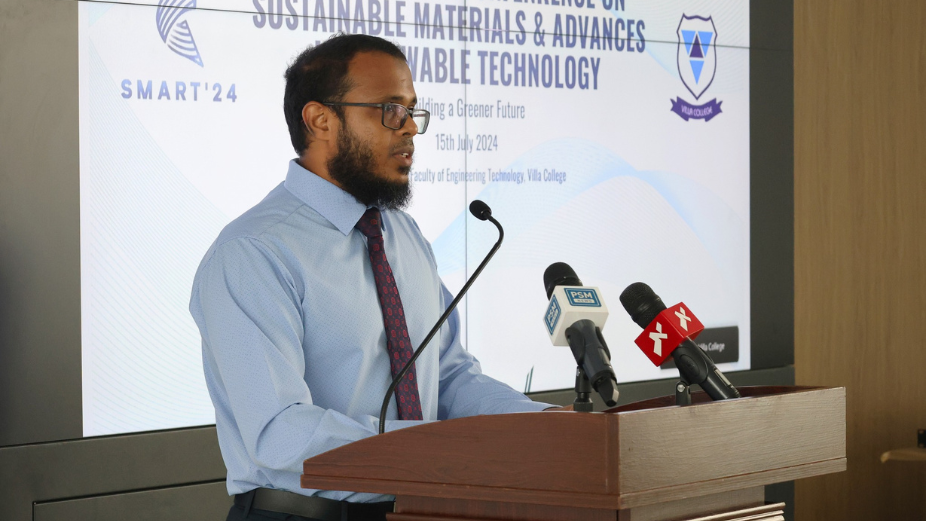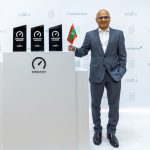
Special Envoy for Climate Change Ali Shareef has called for the Maldives to seek additional solutions for generating renewable energy. His remarks were made during the Sustainable Materials and Advances in Renewable Technologies international conference.
In his address, Special Envoy Shareef highlighted that while significant efforts have been made to generate renewable energy through solar and wind power, the potential of ocean resources remains largely untapped. He emphasised the critical importance for countries like the Maldives to harness these ocean resources to produce hydroelectric power. Given the Maldives’ limited land area, Shareef pointed out that installing solar panels is not a sustainable long-term solution, especially with the growing population and increasing energy demands. He asserted that the Maldives must enhance its energy production by leveraging the resources at its disposal.
A comparison between hydroelectric power and solar power provides insight into potential avenues for expanding the country’s renewable energy portfolio.
Hydroelectric power utilises the energy of flowing water to generate electricity, often through dams or river currents. It is known for its high efficiency, converting over 90% of the energy from water into electricity. Once established, hydroelectric facilities offer a reliable and consistent energy output with low operating costs and minimal emissions during operation. However, the construction of such facilities can have significant environmental impacts, including habitat disruption and the displacement of local communities. Additionally, hydroelectric power generation is highly dependent on geographical location and water availability, making it vulnerable to drought conditions.
In contrast, solar power harnesses sunlight using photovoltaic (PV) panels, which convert solar energy directly into electricity. Solar power systems are versatile, ranging from small rooftop installations to large-scale solar farms, making them accessible for various applications. While the efficiency of solar panels is generally lower than hydroelectric systems, technological advancements are steadily improving their performance. Solar power benefits from being available in most locations globally, requiring minimal maintenance and producing no emissions during operation. However, it faces challenges such as variability in energy production due to weather conditions and the need for significant land or rooftop space for large installations.
The global conference serves as an international platform for educators, experts, and industry researchers to discuss strategies for achieving the Sustainable Development Goals (SDGs). During the event, participants will address the most challenging issues and explore sustainable solutions through modern technology. The conference will feature research papers across nine fields, with experts engaging in discussions and presentations.
Given the Special Envoy’s strong statements, it raises questions about whether this approach has been prioritised by the government. What measures are currently being taken to advance renewable energy production using ocean resources? Has the government developed a concrete plan to transition from solar and wind energy to more sustainable methods like hydroelectric power? These questions remain crucial as the Maldives continues to navigate its energy challenges amidst a growing population and increasing capacity demands.
As the discussions unfold at the conference, it is hoped that practical solutions and collaborative efforts will emerge, paving the way for a more sustainable and energy-secure future for the Maldives.











